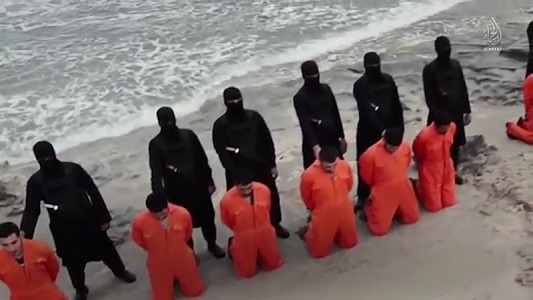
Four years since the beheading of 20 Coptic Christians on a beach in Libya by Islamic State militants, a book has been published about the victims based on interviews with their families.
The 20 Copts plus one Christian from Ghana, all daily labourers in Libya, were abducted by armed militants who released a graphic video depicting the mass beheading of their captives in February 2015, titled: “A message signed with blood to the nation of the Cross”. Video subtitles described the Christians as “people of the Cross, followers of the hostile Egyptian Church”.
German writer, Martin Mosebach, published a book about those killed titled “The 21: A Journey into the Land of Coptic Martyrs”. For this he spend time with the Coptic communities in Upper Egypt, with the families, the bishops and in their monasteries.
What he found was “a completely different point of view of martyrdom”, he told the Catholic news site The Tablet. “No lamentation, no mourning, no pity, but, instead, pride and happiness. This was not seen as an injustice or an incident that should not have happened. On the contrary, mothers, widows, brothers, and fathers all spoke the same language.”
“Their paintings and photographs, showed the killed ones with royal crowns on their heads. It was all completely liturgical. They were like priests who had given their lives through this act of faith. There was really the presence of the supernatural in the lives of these very simple people who were not mystics at all. These were people with very simple theologies, but it was a real theology,” he said.
In October 2017, Libya officially confirmed it had found the bodies of the beheaded Christians. In May this year, the Egyptian Coptic families of the 20 men received their loved ones’ remains, which were buried in the new Church of the Martyrs of Faith and Homeland, built in their remembrance in the village of Al-Our. The body of the Ghanaian Christian was handed to the Ghanaian Embassy in Libya.
In October last year Libya captured a suspected perpetrator in the beheading of the 21.
